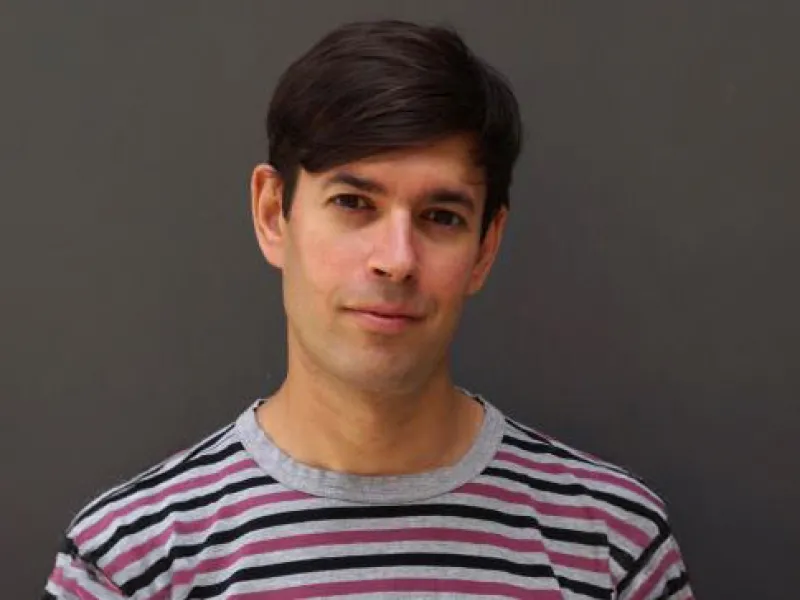
Education
Biography
Jonathan Morton specializes in medieval literature as it intersects with philosophy and the history of science.
He received his D, Phil. in Medieval and Modern Languages from the University of Oxford in 2014. Before coming to Tulane University in 2019 he previously held positions at the University of Oxford, Columbia University, Kings College London, and the Max Planck Institute for the History of Science, Berlin, and began his career as a schoolteacher at St Paul’s Way Community School, London.
His first monograph The "Roman de la rose" in its Philosophical Context: Art, Nature, and Ethics was published with Oxford University Press in 2018 (https://doi.org/10.1093/oso/9780198816669.001.0001) and his second, co-authored with musicologist Elizabeth Eva Leach will be published in June 2025 with Cornell University Press, entitled Performing Desire: Knowledge, Self, and Other in Richard de Fournival’s “Bestiaire d’amours”.
He is completing a third monograph, entitled Engines of Invention: Thinking Machines in the High Middle Ages. This study focuses on French and Latin literary, philosophical, and scientific texts, written in England and France in the twelfth century, and considers the status of machines in medieval intellectual culture, especially in relation to cognition. Taking in topics as varied as medieval cognitive science, astral magic, cosmology, allegory, and the medieval representation of time, it shows literature to be understood as a conceptual machine for thinking about humans in their relation to the more-than-human and as a critical site for thinking about what it is to live with machines.
He has co-edited two collected volumes, Medieval Thought Experiments: Poetry, Hypothesis, and Experience in the European Middle Ages (Brepols, 2018), https://doi.org/10.1484/M.DISPUT-EB.5.113669, and The ‘Roman de la Rose’ and Thirteenth-Century Thought (Cambridge University Press, 2020), https://doi.org/10.1017/9781108348799.
Recent articles and book chapters include:
‘Defining Nature’, The Bloomsbury Cultural History of Nature 2: The Middle Ages, ed. by Anke Bernau and Kellie Robertson (London: Bloomsbury, forthcoming)
‘La poétique (anti-)scolastique du Bestiaire d’amours et du Roman de la rose’ in La littérature et la pensée scolastique en France (XIIIe-XVesiècles), ed. by Valérie Fasseur and Jean-René Valette (Paris: Beauchesne, forthcoming)
‘Out of Time: Ekphrasis, Narration, and Temporal Experience in Twelfth-Century Romances of Antiquity’, Interfaces: A Journal of European Literatures, 10 (2023): ‘Narrating Time in the Twelfth Century’, ed. by Sarah Bowden, Lea Braun, and George Young: 116–50. https://doi.org/10.54103/interfaces-10-07
with Andrew Hicks, ‘Philosophies: Cosmos and Politics, Harmony and Disharmony’ in The Bloomsbury Cultural History of Western Music in the Middle Ages, ed. by Helen Deeming and Elizabeth Eva Leach (London: Bloomsbury, 2023), 55–79.
‘Human, animals, and nature in the Romance of the Rose’ in Approaches to Teaching the ‘Romance of the Rose’, ed. by Daisy Delogu and Anne-Hélène Miller (New York: The Modern Language Association of America, 2023), 113–25.
‘Making Sense of ingenium: Translating Thought in Twelfth-Century Latin Texts on Cognition’ in Premodern Experience of the Natural World in Translation, ed. by Maria Auxent, Katja Krause, and Dror Weil (London: Routledge, 2022), 90–110.
https://doi.org/10.4324/9781003258704
‘Automates, robots et Orients utopiques dans la littérature française du douzième siècle’ in Les utopies scientifiques au Moyen Âge et à la Renaissance, ed. by Roberto Poma, Nicolas Weill-Parot, Micrologus (Florence: SISMEL-Galluzzo, 2021), 25–44.
‘Engin: Creativity, Invention, and Knowledge in the Medieval Romance Tradition of Alexander the Great’, Romanic Review, 111. 2 (September 2020), 206–26.
https://doi.org/10.1215/00358118-8503452
‘Allegory’, The Oxford Encyclopedia of Literary Theory (Oxford: Oxford University Press, 2015–)
https://doi.org/10.1093/acrefore/9780190201098.013.1047

